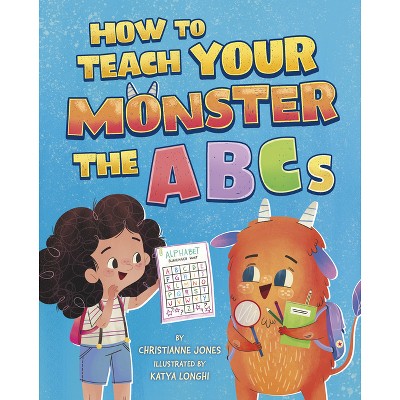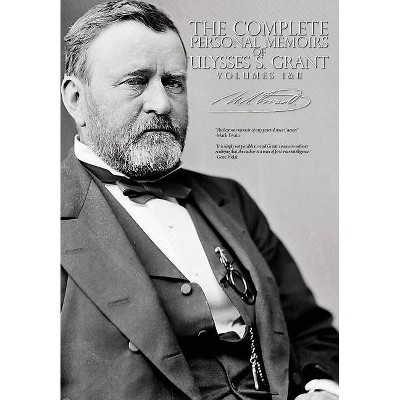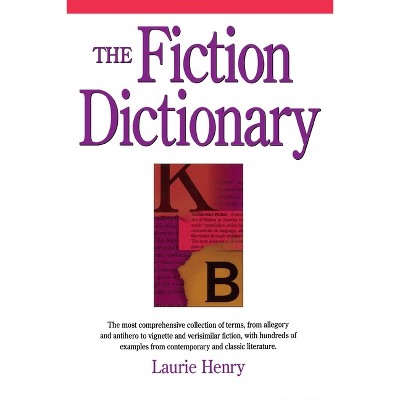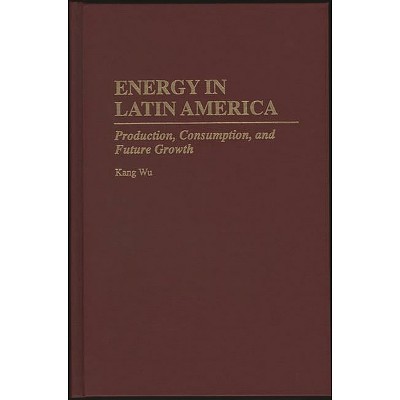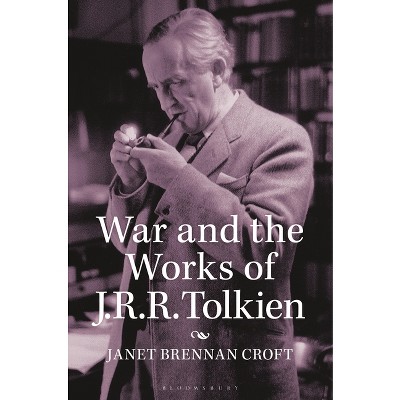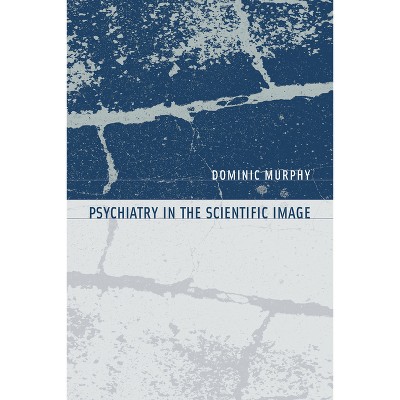Sponsored

Science Fiction from China - by Dingbo Wu & Patrick D Murphy (Hardcover)
In Stock
Sponsored
About this item
Highlights
- Despite periods of heavy censorship and political opposition, science fiction has emerged in the People's Republic of China as a popular literary genre.
- About the Author: DINGBO WU has taught in the English Department at Shanghai International Studies University since 1964.
- 217 Pages
- Fiction + Literature Genres, Science Fiction
Description
About the Book
Despite periods of heavy censorship and political opposition, science fiction has emerged in the People's Republic of China as a popular literary genre. This anthology of stories by six major Chinese science fiction writers is the first such collection to be published in English. The stories are enriched by China's ancient tradition of fantastic literature as well as that nation's fascination with futuristic science and technology, and they provide illuminating glimpses of Chinese attitudes, values, and daily life. Wu provides a comprehensive introduction to the history of Chinese science fiction together with a chronological bibliography of stories, novels, and related critical works. This fine anthology of eight stories by six authors shows that, while years behind the west in terms of maturity of the genre, China is catching up as fast as the state will allow. Editor Dingbo Wu's excellent introduction gives a historical overview of SF in China, while detailing the fluctuations of political acceptibility during the past decade.
Publishers Weekly
Despite periods of heavy censorship and political opposition, science fiction has emerged in the People's Republic of China as a popular literary genre. This anthology of stories by six major Chinese science fiction writers is the first such collection to be published in English. The stories are enriched by China's ancient tradition of fantastic literature as well as that nation's fascination with futuristic science and technology, and they provide illuminating glimpses of Chinese attitudes, values, and daily life.
Like most Chinese science fiction writers, the authors represented in this volume are engaged in scientific research or the popularization of science. Their work reflects the critical dictum that scientific fiction must be scientifically factual or based on reasonable extrapolations of known fact. Among the themes treated in these stories are people's use of and relationship to robots and clones; peaceful versus military application of technology; futuristic detection and intelligence operations; space exploration and warfare; and personal heroism, patriotism, and responsibility. The stories typically incorporate an optimistic view of science's contribution to the future of humankind. Wu provides a comprehensive introduction to the history of Chinese science fiction together with a chronological bibliography of stories, novels, and related critical works. This collection offers a unique perspective on modern China and a welcome opportunity to explore the Chinese contribution to one of the most popular forms of contemporary fiction.
Book Synopsis
Despite periods of heavy censorship and political opposition, science fiction has emerged in the People's Republic of China as a popular literary genre. This anthology of stories by six major Chinese science fiction writers is the first such collection to be published in English. The stories are enriched by China's ancient tradition of fantastic literature as well as that nation's fascination with futuristic science and technology, and they provide illuminating glimpses of Chinese attitudes, values, and daily life. Wu provides a comprehensive introduction to the history of Chinese science fiction together with a chronological bibliography of stories, novels, and related critical works. This fine anthology of eight stories by six authors shows that, while years behind the west in terms of maturity of the genre, China is catching up as fast as the state will allow. Editor Dingbo Wu's excellent introduction gives a historical overview of SF in China, while detailing the fluctuations of political acceptibility during the past decade.
Publishers Weekly
Review Quotes
"I thank each one of the individual Chinese science fiction writers whose works are included here--and all those others who could not be included--for their devoted efforts to bring to the Chinese people those special insights and understandings that science fiction, of all literatures, is best able to provide. And, particularly, I thank Patrick D. Murphy and Wu Dingbo for their labors in preparing this volume so that the English-speaking part of the world can share the results of their efforts."-Frederick Pohl, from the foreword
?It's a painful irony that this book appears now, right after the events in Tienanmen Square. I am reminded of something a Chinese-American SF writer told me, after his trip to China. The writers there explained to him that they had considerable freedom at the present (prehaps three years ago), but there was no guarantee that the government wouldn't snap down on them at any moment. And now, of course, it has, so this book is a showcase of a literary development nipped in the bud. None of the stores is likely to be popular with American readers. They are all very crude, on the Gernsback-early-pulp level. But as academic exercises, they show what would-be SF writers in China are (or were) thinking. (They were thinking a good deal about the West. They had read much Western SF). Included is Wei Yahua's "Conjugal Happiness in the Arms of Morpheus," the very story which shut down Chinese science fiction for a year, because, in the guise of a critique of Asimov's Three Laws of Robotics, it subtly questions authority and suggests that the future could possibly be other than a rosy utopia. Publishers were so afraid of the consequences of this story that they stopped publishing SF. Now, of course, they have a much better reason for jitters.?-Aboriginal Science Fiction
?This fine anthology of eight stories by six authors shows that, while years behind the west in terms of maturity of the genre, China is catching up as fast as the state will allow. Editor Dingbo Wu's excellent introduction gives a historical overview of SF in China, while detailing the fluctuations of political acceptability during the past decade. If the plots are generally familiar, the stories convey the freshness with which the authors approached them, making them each one more than just another variation on an old theme. Wei Yahua's Conjugal Happiness in the Arms of Morpheus' finds a new way to bring a robot to life. The Mysterious Wave' by Wang Xiada and Death Ray on a Coral Island' by Tong Enzheng are both classic gadget stories. Conversely, Ye Yonglie's Corrosion' is mostly concerned with the moral dilemma of desired fame vs. livable self-image. The chronological bibliography of Chinese SF is a valuable resource.?-Publishers Weekly
"This fine anthology of eight stories by six authors shows that, while years behind the west in terms of maturity of the genre, China is catching up as fast as the state will allow. Editor Dingbo Wu's excellent introduction gives a historical overview of SF in China, while detailing the fluctuations of political acceptability during the past decade. If the plots are generally familiar, the stories convey the freshness with which the authors approached them, making them each one more than just another variation on an old theme. Wei Yahua's Conjugal Happiness in the Arms of Morpheus' finds a new way to bring a robot to life. The Mysterious Wave' by Wang Xiada and Death Ray on a Coral Island' by Tong Enzheng are both classic gadget stories. Conversely, Ye Yonglie's Corrosion' is mostly concerned with the moral dilemma of desired fame vs. livable self-image. The chronological bibliography of Chinese SF is a valuable resource."-Publishers Weekly
"It's a painful irony that this book appears now, right after the events in Tienanmen Square. I am reminded of something a Chinese-American SF writer told me, after his trip to China. The writers there explained to him that they had considerable freedom at the present (prehaps three years ago), but there was no guarantee that the government wouldn't snap down on them at any moment. And now, of course, it has, so this book is a showcase of a literary development nipped in the bud. None of the stores is likely to be popular with American readers. They are all very crude, on the Gernsback-early-pulp level. But as academic exercises, they show what would-be SF writers in China are (or were) thinking. (They were thinking a good deal about the West. They had read much Western SF). Included is Wei Yahua's "Conjugal Happiness in the Arms of Morpheus," the very story which shut down Chinese science fiction for a year, because, in the guise of a critique of Asimov's Three Laws of Robotics, it subtly questions authority and suggests that the future could possibly be other than a rosy utopia. Publishers were so afraid of the consequences of this story that they stopped publishing SF. Now, of course, they have a much better reason for jitters."-Aboriginal Science Fiction
About the Author
DINGBO WU has taught in the English Department at Shanghai International Studies University since 1964. More than forty of his articles and translations in Chinese and English have been published in China and the United States. He is a member of World SF.
PATRICK D. MURPHY is Professor of English at Indiana University of Pennsylvania. He co-edited Essentials of the Theory of Fiction and Critical Essays on Gary Snyder and has published articles and essays in a variety of scholarly journals.Shipping details
Return details
Frequently bought together
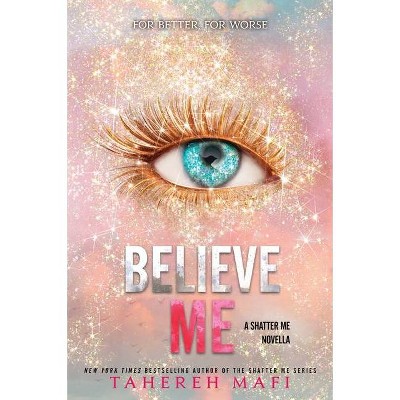
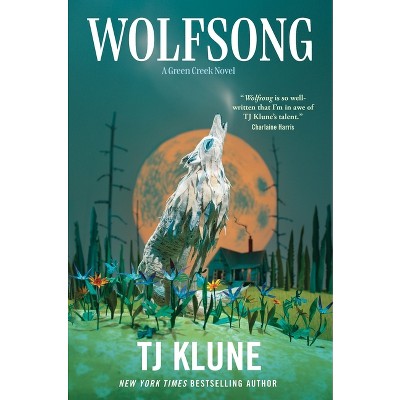
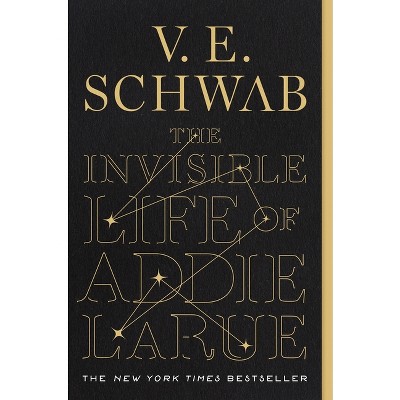
Guests also viewed



Discover more options

